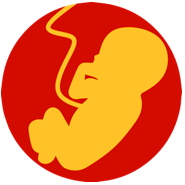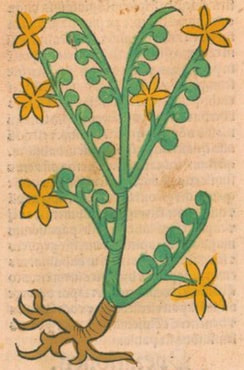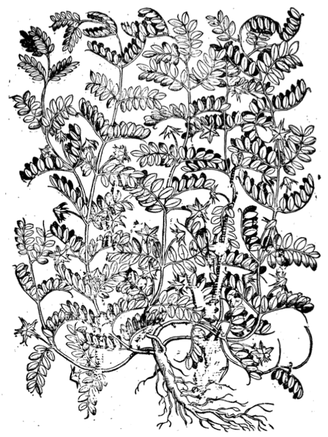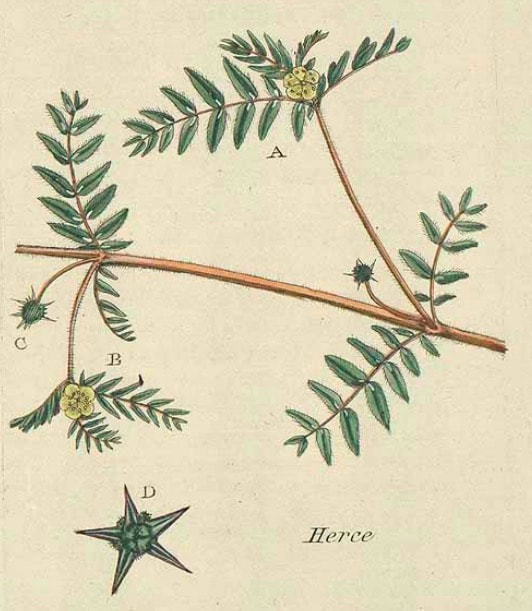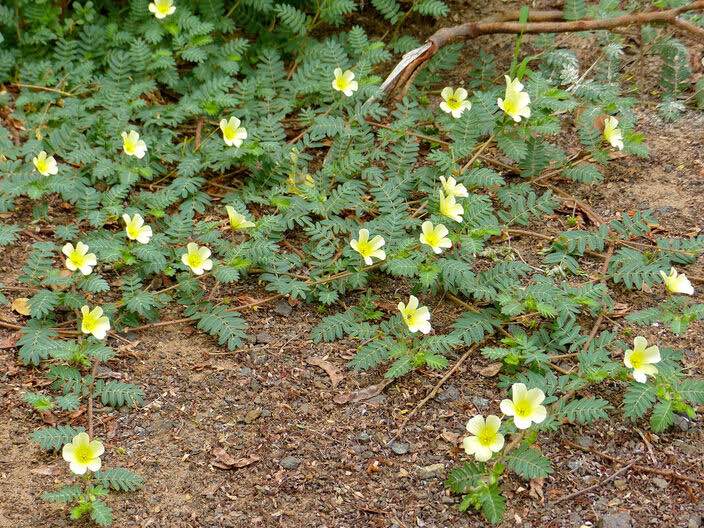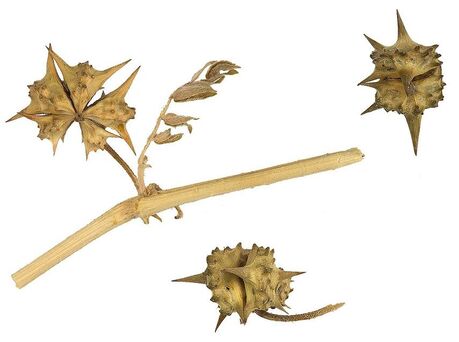Sentry Page Protection
Tribulus
Ortus Sanitatis, Meydenbach, 1491
Ortus Sanitatis, Meydenbach, 1491
New Kreuterbuch, Matthiolus, 1563
Bulliard, Flora Parisiensis, 1776-1781
Botanical name:
Tribulus terrestris
Local varieties reportedly used include T. lanuginosus, T. subramanyamii, T. alatus
Parts used:
Seed
Temperature & Taste:
Neutral (Warm). Bitter, Pungent
"According to Dioscorides these two kinds of hasak are Cold and Dry but other physicians believe it to be Hot in the beginning of the first degree and Dry in the first degree. The latter description applies well to the hasak found in our country". (Avicenna)
Classifications:
3I. APHRODISIACS
TCM:
I. Medicines for Internal Wind
N. Tonics
Tribulus terrestris
Local varieties reportedly used include T. lanuginosus, T. subramanyamii, T. alatus
Parts used:
Seed
Temperature & Taste:
Neutral (Warm). Bitter, Pungent
"According to Dioscorides these two kinds of hasak are Cold and Dry but other physicians believe it to be Hot in the beginning of the first degree and Dry in the first degree. The latter description applies well to the hasak found in our country". (Avicenna)
Classifications:
3I. APHRODISIACS
TCM:
I. Medicines for Internal Wind
N. Tonics
Uses:
1. Benefits Kidney Yang: (Ayurveda, Unani)
-'stimulates Sexual Desire'. (Avicenna)
-Impotence, Spermatorrhea, Premature Ejaculation (Ayurveda)
-low Libido, poor Sperm Quality or Low Sperm Count; used in various modern formulas as an Aphrodisiac.
-Diabetes (Tibetan Medicine)
-Traditionally said to promote body weight.
-Rasayana in general Debility. (Ayurveda)
-In Tibetan formulas for Kidney weakness, Sexual Debility, Edema, and Osteoporosis, and is regarded as a Brain Tonic.
-"Stimulates Sexual desire" (Avicenna)
="Long-term use helps muscle growth, brightens the eye and makes the patient happy and vigorous" (Shen Nong Ben Cao)
-"Reinforces the Jing [Essence]". (Da Ming)
-research has not been able to demonstrate benefit in Erectile Dysfunction when used alone
-it has demonstrated adaptogenic effects
2. Clears Heat and Damp, Promotes Urine, Resolves Stones: (Ayurveda, Unani)
-Edema, water retention
-Cystitis, blood in the Urine, Dysuria, burning Urine;
-Bright’s Disease with Edema, Phosphaturia.
-Urinary Calculi; Gout. (Ayurveda)
-recently for Prostatitis and Benign Prostatic Hyperplasia (BPH)
-"dissolves Kidney ana Bladder Stones and, similarly, its extract is useful in Dysuria". (Avicenna)
-'swelling of the Testes' (Ming Yi Bie Lu)
3. Moves the Liver Qi, Resolves Stasis: (Ayurveda, TCM)
-pain and distention of the Liver area, chest or flanks
-Uterine disorders (Ayurveda)
-Polycystic Ovary Syndrome (PCOS)
-'good for removing blood stasis, dissolving hard mass' (Shen Nong Ben Cao)
-'accelerates Delivery and promotes Abortion' (Da Ming)
4. Calms Internal Wind: (Ayurveda, TCM)
-rising Liver wind with symptoms such as Headache, Dizziness and Hypertension and other similar Wind disorders (TCM)
-Heart disorders coming from Wind such as Palpitations and Angina Pectoris. (Ayurveda)
-also for Asthma in Ayurveda
5. Stops Wind, Relieves Itching: (Ayurveda, TCM)
-various types of skin disease with marked itching
-Dermatitis, Hives, Scabies, Vitiligo etc.
-traditionally used for Leprosy. (TCM)
6. Clears Heat, Benefits the Eyes:
-various eye conditions with Red, Itchy, Swollen or Painful eyes. (TCM)
7. Resists Poison: (Ayurveda, Unani)
-"Commended against Poisons, and restores those who are bitten by Serpents" (Pharmacopoeia Universalis, R. James, M.D., London, 1743);
-"Two dirham (7 gm) of wild hasak is useful in Snake Bite and dose of two dirham (7 gm) with wine is useful in Fatal poisoning". (Avicenna)
-Used for Scorpion stings in Ayurveda.
8. Promotes Milk:
-insufficient Breast milk due to sluggish Liver Qi
9. Kills Worms:
-It has been used for Worms in Ayurveda.
10. Externally:
-ash of the whole plant is used externally in Rheumatic Arthritis.
-"Used with Honey, it proves useful in Foul Ulcers". (Avicenna)
-putrid ulcers of the Gums (Avicenna)
Dose:
Decoction: 3–12 grams. Or decoct 3 oz. of the bruised fruit in 1 ½ pints oif water down to 1 pint. Dose: 1–3 fl. oz.
Powder: 2–4 grams (up to 9 grams has been used)
Preparation:
1. The seeds are gently heated in hot sand, then put into a sack and rubbed to remove the sharp spines which are said to be mildly toxic. (Tibetan Medicine)
Corrective:
Almond is considered as a corrective in Unani.
Substitute:
Pedalium murex is used synonymously in Ayurveda, and also goes by the name of Goksura.
Decoction: 3–12 grams. Or decoct 3 oz. of the bruised fruit in 1 ½ pints oif water down to 1 pint. Dose: 1–3 fl. oz.
Powder: 2–4 grams (up to 9 grams has been used)
Preparation:
1. The seeds are gently heated in hot sand, then put into a sack and rubbed to remove the sharp spines which are said to be mildly toxic. (Tibetan Medicine)
Corrective:
Almond is considered as a corrective in Unani.
Substitute:
Pedalium murex is used synonymously in Ayurveda, and also goes by the name of Goksura.
Main Combinations:
Urinary:
1. Dysuria, suppressed Urine:
i. Tribulus with Asparagus root
ii. Decoct the fruit and take with Yavakshara (impure Potassium carbonate)
iii. Tribulus with Cubebs, Rhubarb and Saltpeter (as in Goksuradi Churna of Ayurveda)
iv. Shilajit is taken with Decoction of Tribulus and Honey
v. Urinary retention, dysuria, stones, Tribulus with Bdellium, Coriander, Madder (Ayurveda)
vi. Tribulus with Bdellium, Triphala, Long Pepper, Black Pepper, Ginger, Cyperus rotundus (as in Goksuradi Guggulu of Ayurveda). This is also used for Gonorrheal Rheumatism
2. Urinary Tract Infection, Burning Urine:
i. Tribulus, Boerhaavia with Coriander seed, Rose
ii. Tribulus, Hemidesmus, Coriander seed, Sandalwood
iii. Tribulus with Madder, Sandalwood, Coriander seed (Ayurveda)
3. Edema:
i. Tribulus, Ephedra, Coriander seed
ii. Tribulus, Boerhaavia, Coriander seed, Tinospora
iii. from Kidney weakness, Tribulus, Boerhaavia, Shilajit
4. Gravel, Stones:
i. Tribulus with Bergenia ciliata (this is marketed as Cystone)
ii.. burning urine and Stones, Tribulus, Boerhaavia, Madder
iii. Tribulus with Crataeva bark (Varuna), Ginger as a decoction with Honey
iv. an injection is prepared from Crataeva bark (Varuna) and Tribulus by decocting them, then boiling the concentrated decoction with Sesame oil which is injected in for painful urination and gravel.
5. Diabetes, and to regulate Blood Sugar (especially Phlegm types) Tribulus, Gymnema, Tinospora, Picrorhiza (Ayurveda)
6. Incontinence, Bedwetting, Tribulus with Mullein
Reproductive:
7. Impotence, Aphrodisiac:
i. Tribulus with Sesame seed and Goat Milk and Honey (Ayurveda)
ii. Tribulus with Henbane (Ayurveda)
iii. Tribulus with Cornus Shan Zhu Yu (proven effect, see below)
iv. Tribulus with Mucuna (equal parts), taken with Sugar and warm Milk; this is used as an aphrodisiac (Sushruta)
v. Tribulus with Withania, Asparagus racemosa root, equal parts (Ayurveda)
vi. Tribulus with Withania, Mucuna, Black Sesame seed, Frankincense (Ayurveda)
vii. Tribulus with Ginger, Black Pepper, Long Pepper, Cardamon, Mesua, Indian leaf, Nutmeg, Tabasheer
viii. Chlorophytum with Basil seed, Tribulus, Mucuna
ix. and to increase Virility, Tribulus with Yohimbine, Epimedium Yin Yang Huo, Korean Ginseng and Saw Palmetto
8. Premature Ejaculation, Spermatorrhea:
i. Tribulus, Argyreia root, Leptadenia reticulate, Parmelia perlata
ii. Tribulus with Mucuna, Asparagus racemosa, Sida rhombifolia
iii. Spermatorrhea, Impotence, Tribulus with Sesame, Mucuna, Withania, mixed with Honey and Ghee (Ayurveda)
9. Seminal Debility:
i. Tribulus with Asparagus root
ii. Tribulus with Licorice, Withania, Cuculigo orchioides
iii. Tribulus with Emblic Myrobalan, Tinospora
10. Benign Prostatic Hyperplasia, Prostatitis:
i. Shilajit with Tribulus, Bdellium
ii. Tribulus with Murraya koenigii (proven effect, see below)
11. Female Debility:
i. Tribulus with Dang Gui, Asparagus Shatavari
ii. Tribulus with Curculigo, Mucuna, Tinospora
iii. to increase female strength and beauty, Tribulus with Ginger, Asparagus Shatavari, Pueraria tuberosa, Chlorophytum, Cinnamon, Inula racemosa, Tabasheer, Fenugreek, Licorica, Cyperus rotundus
12. Leukorrhea, Urinary disorders with Weakness Tribulus seed with Chlorophytum, Tragacanth, Quince seed (Ayurveda)
13. Infertility, Female debility, Postpartum to strengthen the Uterus, Tribulus with Asparagus racemosus, Rose, Saffron, Cyperus rotundus (Ayurveda)
14. Infertility:
i. Tribulus, Rose, Withania, Asparagus Shatavari, Mucuna (Ayurveda)
ii. Tribulus, Withania, Mucuna, Argyreia speciosa
15. Polycystic Ovary Syndrome (PCOS):
i. Tribulus, Withania
ii. Tribulus with Cinnamon, Peony Bai Shao, St. John's wort, Licorice
16. To promote Breast Milk:
i. Tribulus with Fennel seed
ii. Tribulus with Cyperus rotundus
17. Swollen painful Breast abscess, Tribulus with Vaccaria Wang Bu Liu Xing
Other:
18. Skin Itchiness and Inflammation:
i. Tribulus seed with Sesame seed
ii. Tribulus with Cicada slough (TCM)
iii. Tribulus with Neem, Madder, Gotu Kola (Ayurveda)
19. Eczema:
i. Tribulus with Notopterygium Qiang Huo, Astragalus Huang Qi
ii. Tribulus with Neem, Madder, Gotu Kola (Ayurveda)
20. Anxiety and Depression, Tribulus with Emblic Myrobalan and Tinospora Guduchi (proven effect, see below)
21. Nervous disorders, Anxiety:
i. Tribulus with Withania
ii. Tribulus with Centella, Indian Spikenard
22. Parkinsonism, Tribulus with Mucuna
Major Formulas:
Chebula 18 for Urinary Incontinence (Gcin snyi a ru 18) (Tibetan)
Dhatuvallabha Churna (Ayurveda)
Emblic 6 (Kyu ru duk pa) (Tibetan)
Essence Pills (Bcud len ril bu) (Tibetan)
Lygodium 8 (Gser bye brgyad pa)
Mandala of the Sun (Se bru nye dkyil) (Tibetan)
Musali Churna (Curculigo Powder)
Paraquilegia 6 (Mde'u 'byin drug pa) (Tibetan)
Pills of Tribulus and Bdellium (Goksuradi Guggulu)
Powder of Tribulus (Goksuradi Churna) (Ayurveda)
Powder for Seminal Debility
Possessor of Ruby Color (Pad rag mdog ldan) (Tibetan)
Tribulus 3 Decoction (Gze ma gsum thang) (Tibetan)
Turmeric Decoction 4 (Yung ba 4) (Tibetan)
Withania 3 Decoction (Ba spru gsum thang)
Women's Universal Decoction (Mo nad spyi thang) (Tibetan)
Cautions:
1. Not used in Pregnancy
2. Not used in marked Qi and Blood deficiency
Toxicity:
Several cases of Nephrotoxicity have been reported after using large doses or for a prolonged period. Discontinuation of the medicine resulted in improvement.
Main Preparations used:
1. Not used in Pregnancy
2. Not used in marked Qi and Blood deficiency
Toxicity:
Several cases of Nephrotoxicity have been reported after using large doses or for a prolonged period. Discontinuation of the medicine resulted in improvement.
Main Preparations used:
Click the Tabs above for more information on this Medicine
|
'This plant is the Gokshuri and Ikshu-gandha of Sanskrit writers. The Hindus use the fruit and sometimes the whole plant; they regard it as having cooling, diuretic, tonic and aphrodisiac properties, and use it in gonorrhoea and dysuria; it is one of the ten plants which go to form the Dasamula Kvatha, a compound decoction often mentioned in Sanskrit works. The ten plants are Desinodium gangeticum, Uraria lagopodioides, Solanum jacquini, Solanum Indicum, Tribulus terrestris, Aegle marmelos, Calosathes Indica, Gmelina arborea, Stereospermum suaveolens, and Premna spinosa. The first five of these are called Hrasva pancha inula, or the five minor
|
plants, and the last five, Vrihat pancha mula, or the five major plants.
T. terrestris is the Khasak or Hasak of the Arabs and Persians; it is well described by Ainslie, who says:—"It is a common plant near the Dardanelles, and is called in modern Greek [?]. Dioscorides calls it [?] and Pliny tribulus; they both describe two kinds, 'terrestris' and 'aquaticus.' The latter is the Trapa natans, Linn., or Water Chestnut.* In the Pharmacopoeia of India its use as a diuretic in Southern India is noticed.' (Vegetable Materia Medica of Western India, Dymock, 1885) |

